With the nation’s economy on its last stand, the PTI government is at a junction where it’s either their popularity or the nation’s economy that will fall – the government needs to decide.
The crippling economic condition and the ever-increasing debt compounded with the IMF programs call for unsustainable austerity measures seem to be pushing the limits on the government’s popularity. Regardless of whether or not the government completely abides by the recommendations set forth by the IMF, it does have to come up with some measures to control inflation and the increasing circular debt burden.
With Pakistan spending approximately 85 percent of its tax revenue to repay its debt, there is a dire need to develop some policy changes.
Read More: Pakistanis are becoming poorer under PTI’: An interview with Miftah Ismail
Fahd Sheikh who is an investment banker tweeted a list of measures the government needs to undertake to avoid mismanagement, following is his list:
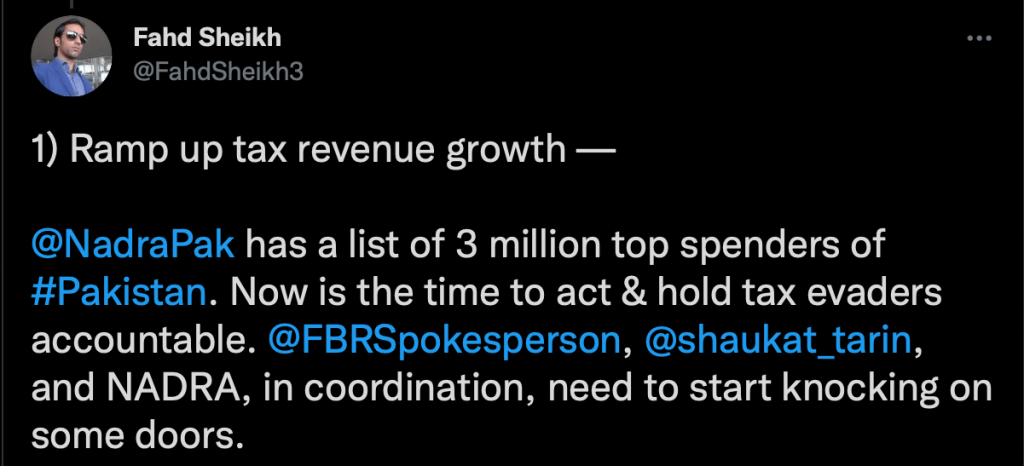
First and foremost, the government needs to crack down on tax evaders and hold them accountable. Many of those who evade tax are influential people who know about the in’s and out’s of the taxation system, making it easier for them to exploit it.
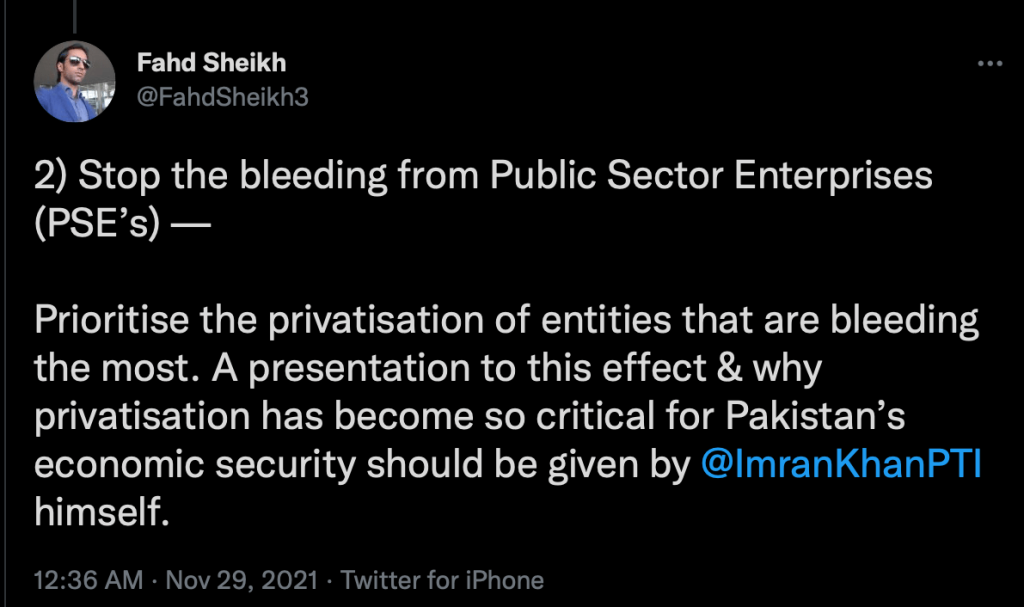
Secondly, the government needs to start privatizing loss-making public entities. These entities serve nothing but are only a burden to the nation’s crippling economy and thus need to be privatized. The government recently privatized PTDC, which became unsustainable because of the Corona pandemic and was a loss-making Public Sector Entity; privatizing it took the burden off the government’s shoulder and put it on a private entity.

The government then needs to start cracking down on electricity theft across the country. The estimated cost of power theft in Pakistan is around Rs. 50 Bn, this has been a major impediment in driving the economy. It needs to look for measures of proper regulation of electricity in the country.
Read More: Reversal of Competitive Energy Pricing: Govt loses credibility?
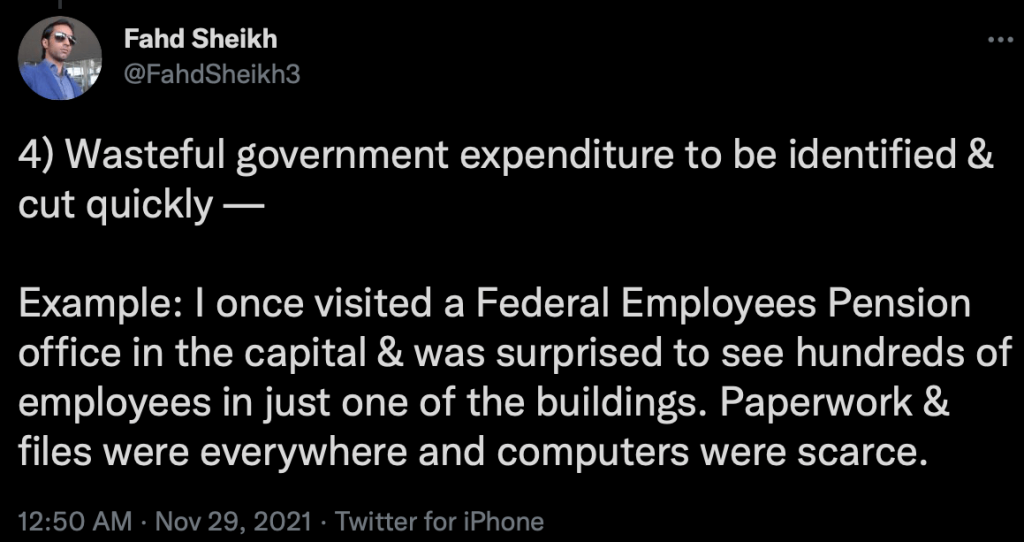
Additionally, the government needs to consider a move away from unskilled labor to a skilled or technical labor force. The government needs to move away from traditional methods and start maintaining databases in a computerized form which is more accessible and requires a lot fewer resources to be employed for its storage.
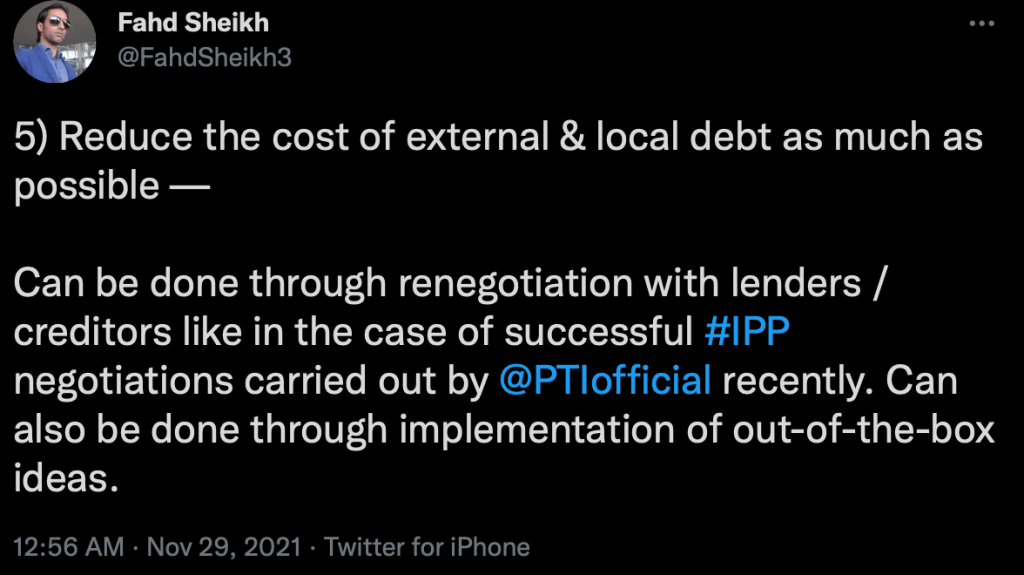
The government also needs to renegotiate some debt agreements or other trade agreements with countries to lift some pressure from the government, maybe negotiate trade agreements with China as hinted by the Advisor for Commerce and Industry, and get a lower duty rate for our exports to China.
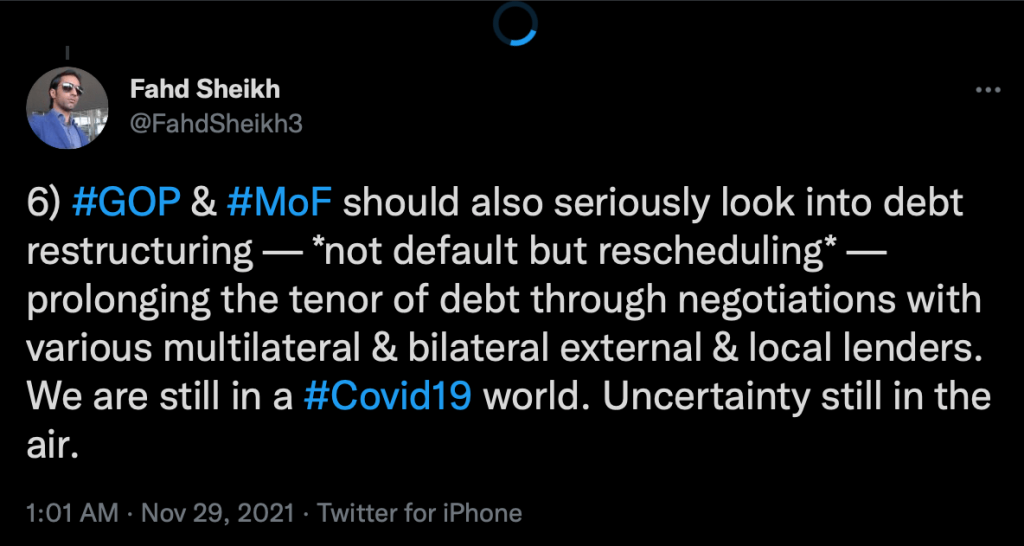
The government also needs to look for unconventional means to attract investments from other countries, whether from the Pakistani diaspora or expats. RDA was an initiative of a kind that has attracted approximately $2.7 Bn in a span of 14 months of investment from Pakistanis around the globe.
Read More: Razaq Dawood hopeful that Pakistan’s exports will reach $50bn
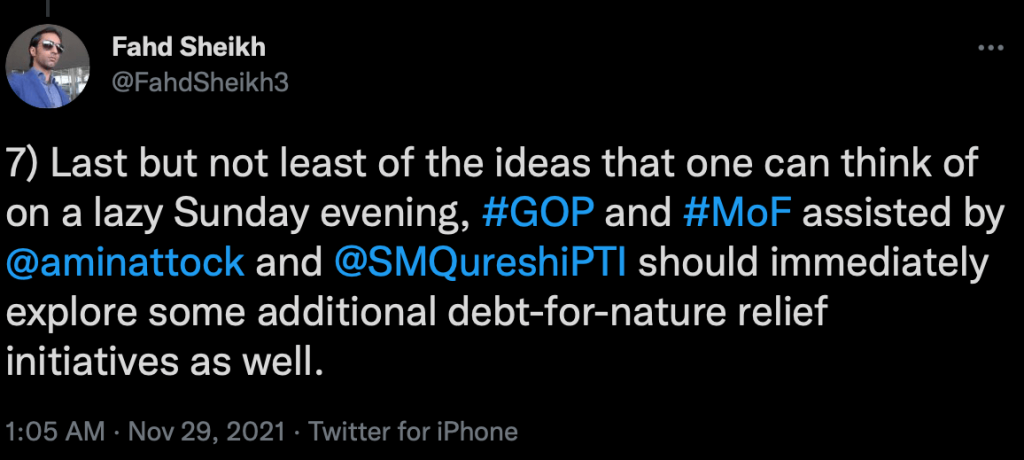
The Ministry of Finance should look into negotiating rescheduling debt payments to the lending parties- prolonging the tenor with not as much interest incurred in the process.
These steps are going to aid in recovering and bouncing back from the pandemic-ridden economy.
Last but not the least, look into and explore additional debt-for-nature-relief initiatives as it has been doing so in the form of carbon trading.
The government is, no doubt, on the edge of pushing the limits of the general masses, especially because the majority of the population is low-income. But the steps mentioned above might be the only way to come out of this alive.













